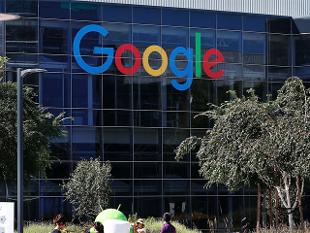Google working on AI-based messaging app: Here’s why it matters
When it comes to mobile messaging apps, Google’s Hangouts has a tough time matching up with the likes of Facebook’s WhatsApp, Messenger or even other apps like Snapchat, Line, WeChat. The app doesn’t quite command an important space on our mobiles vis-a-vis others, for now.
So it is no surprise that Google is testing a new artificial-intelligence based messaging app, which will function like a full-scale service. According to a Wall Street Journal report, Google’s app will rely on chatbots to give answers to queries around weather, news information, restaurants, etc.
Developers might also be allowed to create their own chatbots for the service, adds the report. WSJ also notes that Google tried to buy a similar service called 200 Labs, which has developed such chatbots for messaging app Telegram, but that deal didn’t go through.
But Google isn’t the only one that’s looking at a messaging app that functions on a bigger scale than just sending text or voice-based messages. After all, the scope of revenue growth is limited for any app if the only thing it can do is send free messages.
Social-media giant Facebook is planning a full-scale expansion for Messenger. The company wants to turn Messenger (which has close to 500 million users) into a self-fulfilled platform with other apps.
Just this year, Facebook confirmed the roll-out of M, an AI-based assistant for Messenger. M will completes tasks, find information on a user’s behalf, purchase items, get gifts delivered, book restaurants, fix appointments and more. Facebook also announced an integration with Uber into the Messenger app for US users so that they can just book a cab without leaving the app at all.
And that’s really the space where a lot of messaging apps want to be. Big enough to fulfil all your needs.
For Facebook, if Messenger’s M does a fantastic job of integrating all these tasks, a user won’t be leaving the app. Suddenly Messenger won’t just be about chatting with friends, but about actually getting work done. It will also mean developers will have to start taking the app seriously. This is also the space that Google plans to target with its AI-driven app.
Apps like KakaoTalk in Korea, Line in Japan already offer a plethora of services other than just messaging. KakaoTalk, for instance is omnipresent in Korea. The app lets users shop, has its own mobile wallet, users can send gifts, calls for cabs, all from the KakaoTalk itself. It might have only 100 million users, but its strength lies in integrating a wide array of services and monetising them.
Then there’s Line, which claims to have over 200 million registered users with the app being most popular in Japan, Taiwan, Thailand and Indonesia. Line posted a revenue of 32 billion JPY, which is around $266 million for Q3. For Line, most of its revenue comes from the sale of the stickers in the app, the in-app purchases and the tie-ups it has with brands and celebrities, who people can follow on the Line app.
However in 2015, Line did see a drop in revenue, raising concerns over its user growth base. Nevertheless the Line, Kakaotalk model has shown that it’s possible to make a healthy revenue with these Messaging apps that offer a host of integrated services.
The mobile world is driven by apps and messaging ones reign supreme. According to a latest Neilsen report, in the US, Facebook Messenger is the only messaging app in the top ten coming in at number 3, with Facebook being on top. Messenger is ahead of Google Search, Google Play, Google Maps. Noticeably there’s no Google Hangouts on the list .
In India, the Mary Meeker report for 2015 showed that WhatsApp, Facebook Messenger, Hike are in the list of top ten apps used on Android, which is the dominant mobile OS in the country. Messaging is what is common to these and it doesn’t help that two are owned by Facebook and have more than a billion users if you combine their numbers.
As the numbers show, messaging apps are the most popular across countries, especially in growing markets. A WhatsApp or Messenger becomes the cheaper, ‘free’ way to connect with friends and family and as the potential uses of these apps grow, Facebook stands to gain in a big way.
For Google itself, the move towards mobile search also meant a drop in ad revenues from traditional desktop search, even though it has revamped its mobile strategy to boost ads on smaller screens.
With mobile messaging growing in such a big way, Google needs to up the ante in this arena. For the search giant, the chatbot messaging app will come with a lot at stake.
